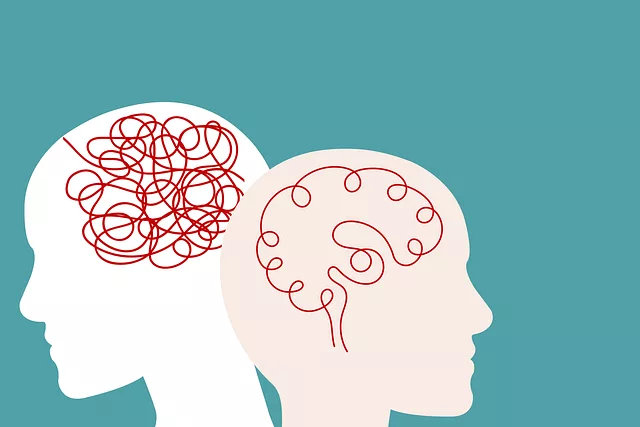The Kaiser Permanente mental health facility in Lone Tree offers specialized trauma support services tailored to diverse individuals' needs. Mental health professionals employ holistic approaches, including mindfulness, exercise, and CBT, to promote healing and build resilience. By identifying trauma through careful assessments and incorporating cultural sensitivity, the facility provides safe spaces for long-term recovery. In today's digital era, they leverage telemedicine and online platforms to make care accessible, fostering an inclusive community that enhances mental wellness.
In today’s complex world, understanding trauma and its profound impact on individuals is more critical than ever. The Kaiser Permanente Mental Health Facility in Lone Tree plays a pivotal role in providing essential trauma support services, offering hope and healing to those affected. This article delves into the multifaceted aspects of trauma, exploring its effects, assessment techniques, therapeutic strategies, and community access initiatives, all centered around the exemplary care provided by the Lone Tree facility.
- Understanding Trauma and Its Impact on Individuals
- The Role of Kaiser Permanente Mental Health Facility Lone Tree in Trauma Support
- Identifying and Assessing Trauma in Patients
- Therapeutic Approaches for Trauma Recovery
- Enhancing Community Access to Trauma Support Services
Understanding Trauma and Its Impact on Individuals

Trauma is a profound and complex experience that can have lasting effects on individuals’ mental health and overall well-being. It is essential to recognize that trauma doesn’t discriminate; it can impact people from all walks of life, including those seeking support at Kaiser Permanente mental health facilities like the Lone Tree location. When an individual experiences a traumatic event, their brain processes information differently, often leading to various emotional, physical, and cognitive reactions. These responses can range from intense fear and distress to prolonged feelings of anxiety and depression.
Understanding trauma is the first step towards providing effective support. At Kaiser Permanente, mental health professionals are equipped to assist individuals in navigating their unique healing journeys. Self-care routine development for better mental health is a key aspect of this process, encouraging practices like mindfulness, exercise, and adequate sleep—all vital components contributing to emotional healing processes. By fostering safe spaces and implementing tailored interventions, facilities such as Lone Tree can significantly contribute to the recovery and resilience of those affected by trauma.
The Role of Kaiser Permanente Mental Health Facility Lone Tree in Trauma Support

The Kaiser Permanente Mental Health Facility in Lone Tree plays a pivotal role in supporting individuals who have experienced trauma. This specialized facility offers a range of services designed to help people navigate and overcome the lasting effects of traumatic events, focusing on both acute crisis intervention and long-term recovery. The professionals at this location are equipped to provide essential coping skills development, enabling individuals to manage stress effectively and build resilience.
Through its comprehensive approach, the mental health facility ensures that patients receive tailored guidance, addressing unique challenges related to trauma. They offer a safe space for individuals to process their experiences, providing crisis intervention services that can quickly de-escalate situations and prevent further harm. By combining evidence-based therapies with a patient-centric approach, Kaiser Permanente Lone Tree empowers its clients to regain control of their lives and foster healthy coping mechanisms, ultimately enhancing overall well-being.
Identifying and Assessing Trauma in Patients

Identifying and assessing trauma is a critical step in providing effective support to patients at Kaiser Permanente mental health facility Lone Tree. This process involves careful listening and observing patient behaviors, as well as utilizing standardized tools and interviews to uncover underlying traumatic experiences. Mental health professionals are trained to recognize signs of trauma such as flashbacks, nightmares, or sudden emotional responses, which can indicate past distressing events.
By incorporating Burnout Prevention strategies, Self-Care Practices, and Mental Wellness Journaling Exercise Guidance into assessment routines, healthcare providers can create a safe space for patients to share their stories. This holistic approach ensures that each individual’s unique needs are addressed, fostering a supportive environment that encourages healing. Through these methods, the mental health facility at Kaiser Permanente Lone Tree aims to provide tailored interventions, promoting long-term recovery and improved mental wellness.
Therapeutic Approaches for Trauma Recovery

The journey towards trauma recovery is complex and highly individualized, necessitating a range of therapeutic approaches at a mental health facility like Kaiser Permanente Lone Tree. One effective method is Cognitive Behavioral Therapy (CBT), which helps individuals identify and modify negative thought patterns and behaviors associated with traumatic events. By challenging unhelpful cognitive distortions, CBT empowers people to develop healthier coping strategies and improve their mood management skills over time.
Additionally, at a facility such as Kaiser Permanente Lone Tree, trauma-focused therapies like Eye Movement Desensitization and Reprocessing (EMDR) have proven beneficial. EMDR combines exposure therapy with guided eye movements to help patients process and resolve traumatic memories. This innovative approach facilitates the brain’s natural healing process, leading to significant improvements in symptoms associated with post-traumatic stress disorder (PTSD). Moreover, cultural sensitivity in mental healthcare practice is paramount, ensuring tailored support for diverse populations, which can significantly impact burnout prevention and overall recovery outcomes.
Enhancing Community Access to Trauma Support Services

In today’s digital era, enhancing community access to trauma support services is more crucial than ever. Kaiser Permanente mental health facility in Lone Tree plays a pivotal role in this regard, offering specialized care and resources tailored to address trauma-related issues. With the integration of innovative therapy approaches and online platforms, the facility ensures that individuals who might otherwise face barriers can access much-needed support from the comfort of their homes. This accessibility is particularly impactful in promoting mental wellness and fostering positive thinking among community members.
The provision of these services extends beyond the four walls of the facility, leveraging technology to reach a broader audience. Through telemedicine sessions and digital support groups, Kaiser Permanente Lone Tree provides an inclusive environment where individuals can connect, share experiences, and receive guidance without the hassle of travel. Such initiatives not only alleviate burnout prevention but also empower individuals to take charge of their mental health, creating a holistic and supportive community ecosystem.
Trauma support services are vital for individuals seeking recovery and healing. As highlighted in this article, understanding trauma’s profound impact on people is the first step towards effective assistance. The Kaiser Permanente Mental Health Facility Lone Tree plays a significant role in providing specialized care, offering therapeutic approaches that cater to diverse patient needs. By enhancing community access to these services, we can ensure that those affected by trauma receive the necessary support. This comprehensive approach, combining education, assessment, and accessible resources, empowers individuals on their journey towards resilience and recovery.






